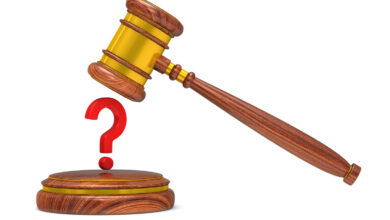The Flynn Affair Could Bring Down Trump’s Presidency
Senate hearings on the subject, including testimony under oath, are likely.
If Donald Trump thinks accepting Michael Flynn’s resignation will feed the beast enough to sate its hunger, he is mistaken.
This story is big, and will only get bigger in the days, weeks and months ahead. It could be the beginning of the end of Trump’s presidency. To be sure, additional dots would have to be connected, but the picture is already beginning to come into focus.
The Washington Post has reported that Flynn discussed U.S. sanctions against Russia with the Russian ambassador during the month before Trump was sworn in. The subject of sanctions was not something that was mentioned casually or incidentally. It was the main topic of at least one of the calls. It did not slip through the cracks of Flynn’s memory.
In the final days of the Obama administration, government officials at the highest level already knew enough about those communications, and the lies Flynn had told about them, to be alarmed. Exactly how they obtained this information isn’t fully known yet, but it seems to have been based on some mix of wiretaps, intercepted Russian diplomatic cables, and human resources.
The Post reported yesterday that in the month before Trump took office, the Director of National Intelligence, the Director of the CIA, the FBI Director, and the Acting Attorney General all believed that Flynn had put himself in a compromising position. The Russian government knew that Flynn had discussed sanctions with their ambassador, and that Flynn had lied about it in public. Flynn had also presumably lied to Vice President Pence, who had issued his own categorical denial.
The familiar and ominous cry of “What did the president know and when did he know it?” is creeping into the national conversation.
The Russians knew that Flynn had lied when he denied having discussed sanctions with the Russian ambassador just as the Obama administration was in the process of imposing those sanctions on them for interfering with our presidential election. This was something the Russians could use as leverage against Flynn. They could threaten to expose him. In a word, Flynn might be vulnerable to blackmail by Russia.
According to the Post, that concern led Sally Yates, the then acting attorney general, to inform Donald McGahn, Trump’s White House Counsel, late last month that she believed Flynn had misled senior administration officials about his communications with the Russian ambassador. Yates warned McGahn that Flynn was potentially vulnerable to Russian blackmail.
So what does all this have to do with Trump? Up to this point, he hasn’t been implicated directly in any inappropriate conduct. But the familiar and ominous cry of “What did the president know and when did he know it?” is creeping into the national conversation.
Another way of putting it might be “What would we have to learn to conclude that Trump’s presidency could be brought down by this scandal?”
The leap from here to there isn’t as far as one might suppose. Although the hard facts aren’t yet there, the logical connections lead in that direction.
Start with the fact that although the vice president categorically denied that Flynn had discussed sanctions with the Russians, Trump never did. This could be because Trump has decided to stay discretely above the fray, but that’s not his style. If Trump believed Flynn was being tarred by fake news, he would have bleated about it on Twitter.
It seems more likely that Trump hasn’t denied it because he can’t. Do we really think that Flynn would have given a wink and a nod to the Russians about the Obama sanctions without Trump’s knowledge or approval? Isn’t it more likely that Trump instructed Flynn to have those conversations? Or, at the very least, that Flynn would have briefed him?
If so, it is likely to come out. John McCain, the Chairman of the Senate Committee on Armed Services and a Member of the Senate Committee on Homeland Security and Government Affairs, is no great friend of Trump or Flynn. He is determined to get to the bottom of the allegations that the Russians interfered with the 2016 presidential election. He is not alone in looking for those answers. Other investigations may be launched. Senate hearings on the subject, including testimony under oath, are likely.
If that happens, Flynn will be the prime witness. His conversations with the Russian ambassador took place before Trump was sworn in, and therefore before he was cloaked in executive privilege. And now that he has resigned, he has no shield against testifying under oath other than the 5th Amendment.
We don’t know how Flynn feels about Trump after being pushed out of his job, but watch out. Flynn might clam up, but if he talks he could bury Trump.
Suppose Flynn testifies that Trump actively directed his communications about the sanctions with the Russian ambassador. Or even that he knew about them. That would mean that Trump was complicit in highly improper, and possibly illegal, communications prior to his taking office. It would also mean that after he became president, he stood mute for weeks while his vice president, national security advisor, chief of staff, press secretary and communications director all made repeated public statements that he knew were untrue.
Bill Clinton was impeached for less. And that’s not the worst of it. What if it turns out that the discussions of sanctions were only part of a greater perfidy? What if it starts to look like Trump favored the Russians with a wink and a nod on sanctions to thank them for helping him win the election? Any evidence of a quid pro quo and Trump is toast.
Flynn isn’t Trump’s only source of worry. It’s hard to believe that McGahn, the White House counsel who was briefed by Acting Attorney General Yates, failed to report the briefing to his boss. McGahn may be able to assert attorney-client privilege to avoid revealing the substance of his discussions with Trump, but the privilege doesn’t shield everything. It shouldn’t protect him from identifying the time, place and subject matter of those discussions. Privilege or no, McGahn could be required to testify whether he briefed Trump on his meeting with Yates, even if he doesn’t have to disclose what he said. That, in and of itself, could be damning.
And just as Flynn’s lies were exposed by eavesdropping, so might Trump’s own knowledge or complicity be exposed through wiretaps and intercepted cables, if they ever see the light of day. Most likely some, if not all of it will be leaked.
Of course, all of this is just speculation right now. None of it may happen. But it sure feels like some rough beast is slouching toward the White House.




